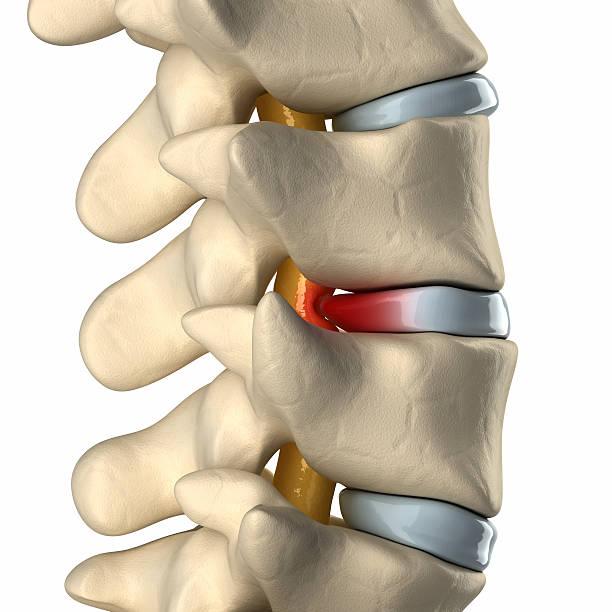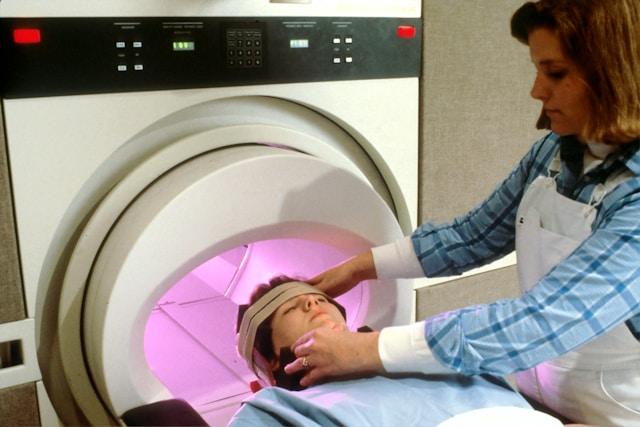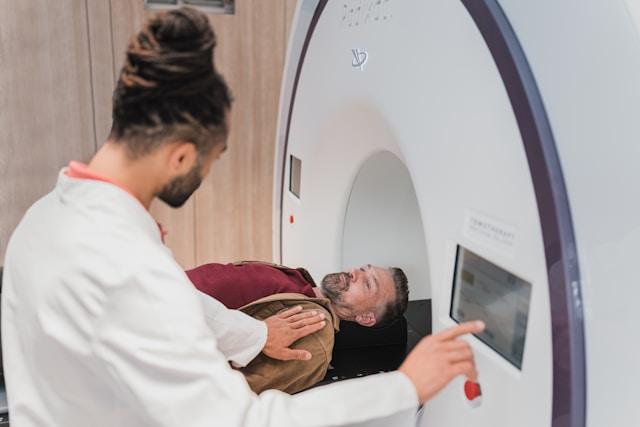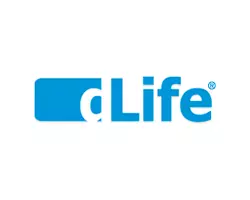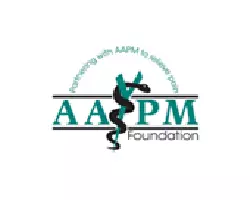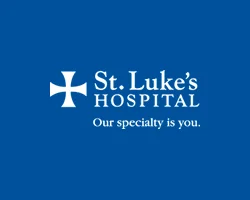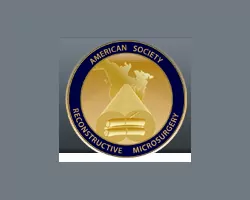If you’re seeking trusted spine specialists and plastic surgeons for nerve compression surgery or spinal cord injury treatment, look no further than St. Louis. Our clinic, staffed by expert spine specialists and therapists, specializes in providing cutting-edge surgical treatment techniques and advanced technology to effectively address nerve compression issues, including those related to diabetic neuropathy. With highly experienced spine specialists who have expertise in performing spine surgeries, we are committed to delivering optimal outcomes for our patients seeking surgical treatment. Our team of physicians is dedicated to providing the best possible care.
Choosing the right team is crucial. Our spine specialists have a proven track record of success in surgical treatment, including spine surgery and nerve surgery. They utilize the latest advancements in the field. We understand the impact that nerve compression, including cubital tunnel syndrome and spinal tumors, can have on your daily life. Our dedicated spine specialists are here to help you find relief and regain functionality through spine surgery.
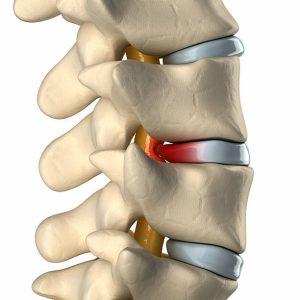
At our St. Louis clinic, we prioritize patient care and comfort when treating spine conditions, such as spinal tumors, ulnar nerve entrapment, and nerve injuries. From diagnosing nerve injuries to post-surgical recovery for spinal tumors and cubital tunnel syndrome, our team will provide personalized attention and support. If you’re looking for top-notch care from experts in spinal tumors and nerve compression surgery, trust our clinic in St. Louis to deliver exceptional results for your spine.
Types and Treatment Options for Nerve Compression Disorders
Nerve compression disorders can be a real pain, literally! When the nerves in our spine get compressed or squeezed due to spinal tumors, it can cause a range of unpleasant symptoms like pain, tingling, and numbness.
Various types of nerve compression disorders explained
There are several types of nerve compression disorders that can affect different parts of the body, including the spine and tumors. One common type is carpal tunnel syndrome, which occurs when the median nerve in the wrist is compressed. Another type of compression occurs in the spine, causing spinal cord injuries. This can cause pain, numbness, and weakness in the hand, fingers, peroneal nerve, and spine.
Another type of back pain is sciatica, which occurs when the sciatic nerve in the lower spine gets compressed. This can result in sharp shooting pain that radiates down the leg, commonly caused by issues with the peroneal nerve originating from the spine. Other examples include cubital tunnel syndrome (compression of the ulnar nerve at the elbow), thoracic outlet syndrome (compression of nerves between the collarbone and first rib), and tarsal tunnel syndrome (compression of nerves in the ankle).
Non-surgical treatment options available for mild cases
For mild cases of nerve compression disorders, non-surgical treatments may provide relief. These options aim to reduce inflammation and alleviate symptoms of the peroneal nerve without invasive procedures. Some non-surgical treatment options include:
-
Physical therapy: Engaging in exercises that stretch and strengthen muscles around the affected area can help relieve pressure on compressed nerves.
-
Medications: Over-the-counter pain relievers or anti-inflammatory drugs may help manage pain temporarily.
-
Splinting or bracing: Wearing a splint or brace can help immobilize and support the affected area, reducing further irritation to compressed nerves.
-
Lifestyle modifications: Making changes such as maintaining good posture, taking frequent breaks during repetitive activities, and avoiding activities that worsen symptoms can help alleviate discomfort.
Surgical interventions recommended for severe cases
In more severe cases of nerve compression disorders, surgical interventions may be recommended. Surgery aims to relieve pressure on the compressed nerves and restore normal function. Some surgical treatment options include:
-
Decompression surgery: This procedure involves removing or repositioning tissues that are compressing the nerve, such as ligaments or bone spurs.
-
Nerve release surgery: In certain cases, releasing a tight ligament or tendon can help alleviate pressure on the nerve.
-
Nerve grafting: If a nerve is severely damaged, a surgeon may use a graft to bridge the gap and promote nerve regeneration.
It’s important to note that surgical interventions are typically considered when non-surgical treatments have failed to provide sufficient relief or when there is significant nerve damage.
Expert Spine Surgeons in St. Louis for Nerve Compression Surgeries
Skilled Spine Surgeons: Specialists in Nerve Compression Surgeries
You need the expertise of skilled spine specialists who have extensive experience in treating complex spinal conditions. In St. Louis, you’re fortunate to have access to some of the best spine surgeons who specialize in nerve compression surgeries.
These highly trained specialists have dedicated their careers to understanding and resolving issues related to nerve compression. They possess a deep understanding of the complexities involved and are equipped with the knowledge and skills necessary to provide effective treatment.
Extensive Experience: Treating Complex Spinal Conditions
One of the key factors that set these spine surgeons apart is their extensive experience in treating complex spinal conditions. They have encountered a wide range of cases involving nerve compression disorders, allowing them to develop a comprehensive understanding of various conditions and their underlying causes.
Their vast experience enables them to accurately diagnose and effectively treat even the most challenging cases. Whether it’s a herniated disc, spinal stenosis, or any other
nerve compression, these experts can provide tailored solutions based on your unique needs.
Utilize Minimally Invasive Techniques: Faster Recovery
A significant advantage offered by these spine surgeons is their utilization of minimally invasive techniques for nerve compression surgeries. Unlike traditional open surgeries that require large incisions and longer recovery times, minimally invasive procedures involve smaller incisions and specialized tools.
By employing these advanced techniques, spine specialists can access the affected area with minimal disruption to surrounding tissues. This results in reduced pain, less scarring, shorter hospital stays, and faster recovery times compared to traditional open surgery methods.
Minimally invasive approaches also offer several benefits:
-
Reduced risk of complications
-
Quicker return to daily activities
-
Less postoperative pain
-
Minimal blood loss during surgery
-
Improved cosmetic outcomes
Thanks to the expertise and skills of these spine surgeons, patients can experience a smoother recovery process while achieving optimal outcomes.
Importance of Neuropax Clinic in Nerve Compression Surgery
At Neuropax Clinic, we pride ourselves on being a leading center for nerve compression surgery in St. Louis. Our clinic has gained recognition for our expertise in this specialized field, and we strive to provide the best possible care to our patients. Here’s why Neuropax Clinic is the go-to destination for nerve compression surgery:
Recognized as a leading center for nerve compression surgery
Neuropax Clinic has established itself as a reputable and trusted institution. Our team of highly skilled spine surgeons specializes in diagnosing and treating various conditions that cause nerve compression, such as herniated discs, spinal stenosis, and carpal tunnel syndrome. With years of experience and extensive training, our surgeons are well-equipped to handle even the most complex cases.
High success rates and positive patient outcomes
One of the key reasons why patients choose Neuropax Clinic for their nerve compression surgery is our impressive track record of success. We have consistently achieved high success rates with our surgical procedures, providing relief from pain and restoring normal function to our patients. Our commitment to delivering positive outcomes is evident through the numerous testimonials from satisfied patients who have experienced significant improvement after undergoing surgery at our clinic.
Comprehensive care provided from diagnosis to post-operative rehabilitation
At Neuropax Clinic, we prioritize comprehensive care throughout the entire treatment process. From the moment you walk through our doors, you can expect personalized attention and thorough evaluations to accurately diagnose your condition. Our team will work closely with you to develop a tailored treatment plan that addresses your specific needs.
During surgery, we utilize advanced techniques and state-of-the-art technology to ensure precise and effective results. Following your procedure, we provide comprehensive post-operative care and rehabilitation services aimed at optimizing your recovery process. Our multidisciplinary approach involves collaborating with physical therapists, pain management specialists, and other healthcare professionals to ensure a holistic and successful recovery.
In addition to our expertise in nerve compression surgery, Neuropax Clinic also offers a supportive and compassionate environment for our patients. We understand the challenges and concerns that come with undergoing surgery, and we strive to provide the necessary emotional support throughout your journey.
Overview of Cubital Tunnel Syndrome and Its Treatment
Cubital tunnel syndrome is a condition that affects the ulnar nerve, which runs along the inner side of your elbow. When this nerve becomes compressed or irritated, it can cause symptoms such as numbness, tingling, and weakness in the hand and fingers. This condition is often referred to as “cubital tunnel” for short.
To treat cubital tunnel syndrome, there are various options available depending on the severity of the symptoms. In less severe cases, conservative treatments may be recommended. These include:
Splinting and Therapy
One of the first steps in treating cubital tunnel syndrome is to immobilize the affected area by wearing a splint or brace. This helps to keep your elbow in a straight position, relieving pressure on the ulnar nerve. Physical therapy exercises can help strengthen the muscles around the elbow and improve flexibility.
Avoidance of Overuse
It’s important to avoid activities that may exacerbate symptoms or put additional strain on the ulnar nerve. Repetitive motions involving bending or flexing of the elbow should be minimized or modified to reduce compression on the nerve.
However, if conservative treatments do not provide sufficient relief or if your symptoms are severe and persistent, surgical intervention may be necessary. Ulnar nerve decompression surgery is a common procedure used to alleviate pressure on the ulnar nerve.
Surgical Treatment: Ulnar Nerve Decompression
During ulnar nerve decompression surgery, your surgeon will make an incision near your elbow to access the cubital tunnel. The ligament responsible for compressing the ulnar nerve is then released or moved to create more space for the nerve. This relieves pressure and allows for better blood flow and healing.
After surgery, you may need physical therapy to regain strength and mobility in your arm. It’s essential to follow post-operative instructions provided by your surgeon to ensure a successful recovery.
While surgery can be an effective treatment option for cubital tunnel syndrome, it’s important to weigh the potential risks and benefits. Some factors to consider include:
-
Pros:
-
Relief from symptoms such as numbness, tingling, and weakness in the hand and fingers.
-
Improved quality of life and ability to perform daily activities without discomfort.
-
Cons:
-
Risks associated with any surgical procedure, such as infection or bleeding.
-
Recovery time may vary depending on individual circumstances.
Surgical Options for Spinal Cord Injuries and Peripheral Nerve Disorders
Surgery can be a viable option. Let’s delve into the surgical procedures available for these conditions and explore the treatment options specifically tailored to peripheral nerve disorders.
Surgical Procedures for Spinal Cord Injuries
Spinal cord injuries are complex and require specialized care. Surgery may be recommended in certain cases to alleviate symptoms, stabilize the spine, or repair damaged nerves. Here are some common surgical procedures used for spinal cord injuries:
-
Decompression Surgery: This procedure involves removing bone or tissue that is compressing the spinal cord or nerves. By relieving pressure on the affected area, decompression surgery aims to reduce pain and improve function.
-
Fusion Surgery: Fusion surgery involves joining two or more vertebrae together using bone grafts or metal implants. This procedure stabilizes the spine, preventing further damage and promoting healing.
-
Disc Replacement: In cases where a damaged disc is causing compression on the spinal cord or nerves, disc replacement surgery may be performed. This procedure involves removing the damaged disc and replacing it with an artificial one, restoring normal function.
Treatment Options for Peripheral Nerve Disorders
Peripheral nerve disorders encompass a range of conditions that affect the nerves outside of the brain and spinal cord. These disorders can cause symptoms such as numbness, weakness, pain, and loss of motor control. Here are some treatment options specifically tailored to peripheral nerve disorders:
-
Nerve Compression Release: When a nerve is compressed due to injury or entrapment by surrounding tissues (such as carpal tunnel syndrome), surgical release may be necessary. This procedure involves cutting or removing the constricting tissue to relieve pressure on the affected nerve.
-
Nerve Grafting: In cases where a peripheral nerve has been severed or damaged beyond repair, nerve grafting may be considered. This procedure involves taking a healthy nerve from another part of the body and using it to bridge the gap, allowing for nerve regeneration and restoration of function.
-
Neuroma Excision: A neuroma is a thickened, painful nerve bundle that can form after injury or surgery. Surgical excision of the neuroma can provide relief from pain and improve overall function.
Minimally Invasive Techniques
Advancements in surgical techniques have led to the development of minimally invasive procedures for both spinal cord injuries and peripheral nerve disorders. These techniques aim to minimize risks, reduce scarring, and promote faster recovery. Some benefits of minimally invasive spine surgery include:
-
Smaller incisions
-
Reduced blood loss
-
Shorter hospital stays
-
Quicker return to normal activities
Minimally invasive procedures often utilize specialized tools such as endoscopes or robotic-assisted devices, allowing surgeons to access and treat the affected area with precision while minimizing trauma to surrounding tissues.
Multidisciplinary Approach at Neuropax Clinic for Nerve Compression Surgery
At Neuropax Clinic in St. Louis, we take a collaborative and multidisciplinary approach to nerve compression surgery. Our team consists of various medical specialists who work together to provide the best possible care for our patients. With a patient-centered focus, we tailor individualized treatment plans that address not only the physical aspects but also the emotional and psychological well-being of our patients.
Collaborative Approach Involving Various Medical Specialists
We understand that it requires expertise from multiple fields. That’s why our clinic brings together a diverse team of professionals including plastic surgeons, neurologists, orthopedic surgeons, and pain management specialists. Each specialist contributes their unique knowledge and skills to ensure comprehensive care for our patients.
By collaborating closely with other medical professionals, we can offer a more holistic approach to nerve compression surgery. This collaborative effort allows us to consider different perspectives and explore various treatment options that may be beneficial for each patient’s specific condition.
Patient-Centered Care with Individualized Treatment Plans
At Neuropax Clinic, we believe in treating each patient as an individual with unique needs and circumstances. We take the time to thoroughly evaluate each case and develop personalized treatment plans that are tailored to address the underlying causes of nerve compression.
Our team works closely with patients to understand their symptoms, concerns, and goals. By actively involving patients in their own care, we empower them to make informed decisions about their treatment options. This patient-centered approach ensures that our treatments align with each individual’s preferences and priorities.
Holistic Approach Addressing Physical, Emotional, and Psychological Aspects
Nerve compression surgery is not just about addressing physical symptoms; it also involves considering the emotional and psychological impact on patients’ lives. We recognize that conditions such as diabetic neuropathy or ulnar nerve entrapment can cause significant pain, discomfort, and limitations in daily activities.
To provide comprehensive care, our team goes beyond surgical interventions. We offer a range of supportive services such as physical therapy, occupational therapy, and pain management techniques to address the multifaceted aspects of nerve compression. By addressing both the physical and emotional well-being of our patients, we aim to enhance their overall quality of life.
Advantages of Choosing Neuropax Clinic for Nerve Compression Surgeries
If you’re considering nerve compression surgery in St. Louis, look no further than the Neuropax Clinic. Our team of expert spine surgeons is dedicated to providing top-notch care and innovative treatments for nerve compression disorders. With a multidisciplinary approach, we ensure that you receive comprehensive and personalized care throughout your treatment journey.
At Neuropax Clinic, we understand the impact that nerve compression can have on your daily life. That’s why our experienced surgeons specialize in a wide range of nerve compression surgeries, from cubital tunnel syndrome to spinal cord injuries and peripheral nerve disorders. We stay up-to-date with the latest advancements in surgical techniques to offer you the most effective and minimally invasive options available.
When you choose Neuropax Clinic, you can trust that you’re in capable hands. Our clinic has built a reputation for excellence in patient care and outcomes. We prioritize your well-being and strive to provide a comfortable and supportive environment throughout your treatment process.
Ready to take the next step towards relieving your nerve compression symptoms? Contact us today to schedule a consultation with one of our skilled surgeons at Neuropax Clinic.
FAQs
How long does it take to recover from nerve compression surgery?
The recovery time after nerve compression surgery varies depending on the specific procedure performed and individual factors. In general, it may take several weeks or even months for complete recovery. Your surgeon will provide detailed post-operative instructions and guide you through the rehabilitation process to optimize healing.
Are there any risks associated with nerve compression surgery?
As with any surgical procedure, there are potential risks involved with nerve compression surgery. These risks may include infection, bleeding, damage to surrounding tissues or nerves, or adverse reactions to anesthesia. However, our experienced surgeons at Neuropax Clinic take every precaution necessary to minimize these risks and ensure your safety.
Will I experience pain after nerve compression surgery?
It is common to experience some discomfort or pain following nerve compression surgery. Your surgeon will prescribe appropriate pain management medications to help alleviate any post-operative pain. They will provide you with instructions on how to manage pain at home and when to seek medical assistance if needed.
How soon can I return to normal activities after nerve compression surgery?
The timeline for returning to normal activities varies depending on the type of surgery and individual healing progress. Your surgeon will provide specific guidelines regarding activity restrictions and gradually increasing your level of physical exertion. It’s important to follow their instructions closely to ensure a successful recovery.
Will my symptoms completely disappear after nerve compression surgery?
While nerve compression surgery aims to relieve symptoms associated with compressed nerves, it may not guarantee complete resolution in all cases. The extent of symptom relief depends on various factors, including the severity of the condition and individual response to treatment. Your surgeon will discuss realistic expectations with you during your consultation at Neuropax Clinic.

